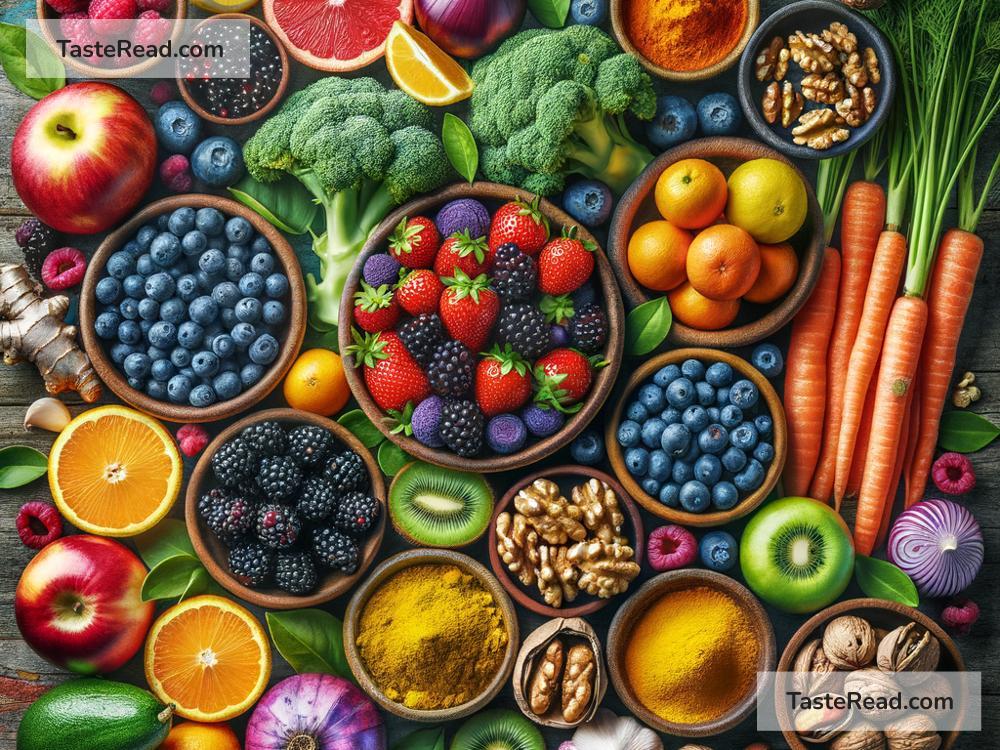Foods That Reduce the Risk of Lymphedema: A Simple Guide
Lymphedema is a health condition that causes swelling, usually in the arms or legs, due to a buildup of fluid. This happens when the lymphatic system, which is responsible for draining fluids and fighting infections, doesn’t work properly. While managing lymphedema often involves therapies like compression garments and exercises, your diet plays an important role too. Eating the right foods can help reduce inflammation, improve circulation, and support your lymphatic system. In this article, we’ll explore some foods that may help lower the risk of lymphedema or make it easier to manage.
Understanding Lymphedema and Nutrition
The lymphatic system relies on proper hydration and good circulation to do its job. If the system becomes overwhelmed, swelling and discomfort can occur. While diet alone can’t cure lymphedema, eating the right foods may help reduce the risk of complications and improve your overall health. The goals of a lymphedema-friendly diet include:
- Reducing inflammation.
- Supporting the immune system.
- Promoting healthy blood and lymph circulation.
- Maintaining a healthy weight (as excess weight can strain the lymphatic system).
Foods to Reduce Lymphedema Risk
Here’s a list of foods that can help improve lymphatic health and reduce the risk of swelling:
1. Fruits and Vegetables Rich in Antioxidants
Antioxidants are natural substances that fight inflammation and boost your body’s ability to repair itself. Many fruits and vegetables are loaded with antioxidants. Here are some examples:
– Berries: Blueberries, raspberries, and strawberries contain antioxidants called anthocyanins, which protect against swelling.
– Citrus fruits: Oranges, lemons, and grapefruits are rich in vitamin C, which supports your immune system.
– Leafy greens: Spinach, kale, and collard greens have anti-inflammatory properties.
– Bright-colored veggies: Sweet potatoes, carrots, and bell peppers contain beta-carotene, which helps your body reduce inflammation.
Adding plenty of fruits and veggies to your diet not only supports your lymphatic system but also helps your body flush out toxins.
2. Foods High in Omega-3 Fatty Acids
Omega-3 fatty acids are healthy fats that reduce inflammation and improve circulation. Foods rich in omega-3s include:
– Fatty fish: Salmon, mackerel, and sardines are excellent sources of omega-3s.
– Nuts and seeds: Walnuts, chia seeds, and flaxseeds contain plant-based omega-3s.
– Avocados: These creamy fruits are full of heart-healthy fats that can improve lymphatic flow.
Including these foods in your meals can help your lymphatic system stay in tip-top shape.
3. Whole Grains
Whole grains like brown rice, quinoa, oats, and barley are better for your health compared to refined grains. They provide fiber, which is essential for good digestion and reducing inflammation. Since chronic inflammation can worsen lymphedema symptoms, switching to whole grains is a smart choice.
4. Foods Rich in Potassium
Potassium plays a big role in balancing fluids in your body, which can help reduce swelling. Potassium-rich foods include:
– Bananas: A simple and healthy snack.
– Sweet potatoes: Packed with potassium and vitamins.
– Beans: Kidney beans, black beans, and lentils are great sources.
– Tomatoes: Fresh tomatoes or tomato-based dishes like soups can boost your potassium intake.
Consuming potassium-rich foods regularly can support your lymphatic system and reduce fluid buildup.
5. Hydrating Foods
Proper hydration is crucial for maintaining lymphatic health. While drinking water is the best way to stay hydrated, many foods also contain plenty of water. Examples include:
– Watermelon: Contains both water and antioxidants.
– Cucumber: A refreshing option with high water content.
– Celery: Helps keep you hydrated while providing fiber.
Staying hydrated helps your lymphatic system flush out waste and prevents fluid retention, which can lead to swelling.
6. Anti-Inflammatory Herbs and Spices
Certain herbs and spices are known for their ability to combat inflammation and promote circulation. Some good options include:
– Turmeric: Contains curcumin, a powerful anti-inflammatory compound.
– Ginger: Aids digestion and reduces swelling.
– Garlic: Strengthens the immune system and supports circulation.
These can be added to your meals or brewed into teas to help support your lymphatic health.
Foods to Avoid
While the focus should be on healthy foods, it’s also important to steer clear of items that can worsen inflammation or contribute to fluid retention. Foods to avoid include:
– Processed foods: Chips, cookies, and fast food are often full of unhealthy fats and additives.
– Excess salt: Too much salt can cause your body to retain water, increasing swelling.
– Sugary drinks: Soda and sweetened beverages can lead to weight gain and inflammation.
Conclusion: Support Your Lymphatic System with Food
Eating a healthy, balanced diet that includes fruits, vegetables, omega-3-rich foods, and whole grains can help reduce the risk of lymphedema or manage its symptoms. Staying hydrated and incorporating anti-inflammatory spices into your meals can also make a big difference. By avoiding processed, salty, and sugary foods, you’re making smarter choices to protect your lymphatic health.
Remember, small changes in your diet can have a big impact on your overall well-being. If you’re dealing with lymphedema or worried about it, speak with a healthcare professional or dietitian to create a personalized plan. Combined with proper care and a healthy lifestyle, the right foods can keep your lymphatic system working smoothly for years to come.


